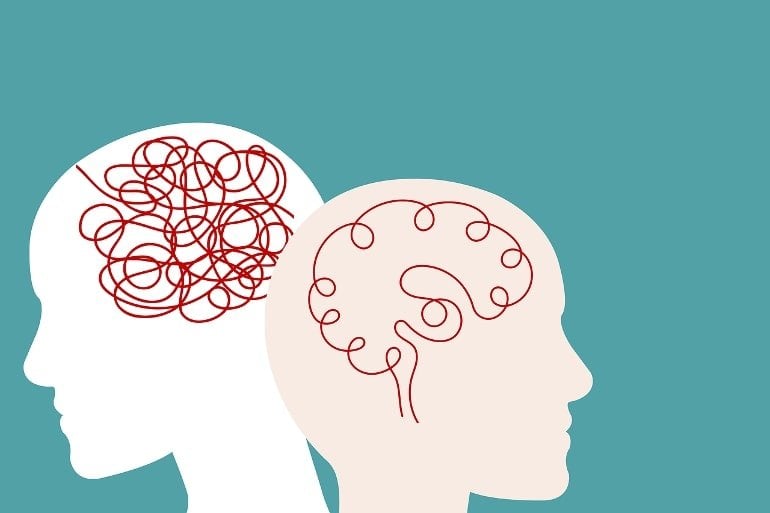Summary: Changes in different components of the immune system, both adaptive and innate immune responses, may play a role in the development of depression in some people.
Source: University of Bristol
A link between depression and changes in counts of several types of immune cells in the blood has been revealed by researchers at the University of Bristol’s MRC Integrative Epidemiology Unit.
These findings, published in Molecular Psychiatry, suggest that changes to different components of our immune system—both the innate and adaptive immune response—could play a role in causing depression.
Although many isolated studies have been conducted previously in this area of research, this is the first large-scale investigation to review and statistically combine data from all studies that have reported immune cell counts, as measured by flow cytometry (a state-of-the-art method for counting immune cells), in adults with and without a diagnosis of depression.
By combining these studies and increasing the total number of people involved, more definitive conclusions can be drawn.
The researchers systematically searched two databases and pooled data from 27 published scientific articles that compared counts of 19 different immune cell types in adults with and without a depression diagnosis. Each study was quality checked and only high-quality studies were included.
Their analyses of 2,277 individuals revealed that counts of eight different types of immune cells, e.g., B cells and T cells, were increased in depression as compared to counts seen in the healthy comparison group without depression.

Éimear Foley, a Ph.D. student and the study’s lead author at Bristol’s MRC Integrative Epidemiology Unit, said, “The question now is whether these changes in immune cells are a cause or consequence of depression and we hope to examine this in future studies.
“It is also important to note that we are not suggesting that anyone with increases in these immune cell types will develop a depressive disorder. Rather we are highlighting the differences that may exist between patients with depression and healthy individuals, that were included in our sample, in their counts of particular immune cell types.
“Current treatments for depression do not work for all patients and immunotherapy could be useful for a subgroup of patients. Our aim is to use these findings to better guide our selection of patients for future immunotherapy trials for depression with the hope of working towards more effective, personalized care in mental health.”
About this depression research news
Author: Press Office
Source: University of Bristol
Contact: Press Office – University of Bristol
Image: The image is in the public domain
Original Research: Open access.
“Peripheral blood cellular immunophenotype in depression: a systematic review and meta-analysis” by Éimear M. Foley et al. Molecular Psychiatry
Abstract
Peripheral blood cellular immunophenotype in depression: a systematic review and meta-analysis
Introduction
Meta-analyses implicate immune dysfunction in depression confirming increased levels of circulating immune proteins (e.g., cytokines) in depression cases compared to controls. White blood cells (WBC) both produce and are influenced by cytokines, and play key roles in orchestrating innate and adaptive immune responses, but their role in depression remains unclear. Therefore, a systematic review of studies of various WBC subsets in depression is required for a greater understanding of the nature of immune dysfunction in this illness.
Methods
We searched PubMed and PsycINFO databases (inception to 5th April 2022) and conducted a systematic review and meta-analysis of identified studies comparing absolute count and/or relative percentage of flow cytometry-derived WBC subsets between depression cases and controls. Selected studies were quality assessed. Random-effect meta-analysis was performed.
Results
Thirty-three studies were included and 27 studies (n = 2277) were meta-analysed. We report an increase in mean absolute counts of WBC (seven studies; standardised mean difference [SMD] = 1.07; 95% CI, 0.61–1.53; P < 0.01; I2 = 64%), granulocytes (two studies; SMD = 2.07; 95% CI, 1.45–2.68; P < 0.01; I2 = 0%), neutrophils (four studies; SMD = 0.91; 95% CI, 0.23–1.58; P < 0.01; I2 = 82%), monocytes (seven studies; SMD = 0.60; 95% CI, 0.19–1.01; P < 0.01; I2 = 66%), CD4+ helper T cells (11 studies; SMD = 0.30; 95% CI, 0.15–0.45; P < 0.01; I2 = 0%), natural killer cells (11 studies; SMD = 1.23; 95% CI, 0.38–2.08; P < 0.01; I2 = 95%), B cells (10 studies; SMD = 0.30; 95% CI, 0.03–0.57; P = 0.03; I2 = 56%), and activated T cells (eight studies; SMD = 0.45; 95% CI, 0.24–0.66; P < 0.01; I2 = 0%) in depression, compared to controls. Fewer studies reported relative percentage, indicating increased neutrophils and decreased total lymphocytes, Th1, and Th2 cells in depression.
Conclusions
Depression is characterised by widespread alterations in circulating myeloid and lymphoid cells, consistent with dysfunction in both innate and adaptive immunity. Immune cells could be useful biomarkers for illness subtyping and patient stratification in future immunotherapy trials of depression, along with cytokines, other biomarkers, and clinical measures.






